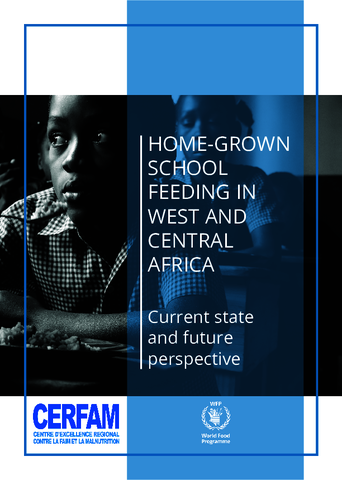
Home-grown school feeding in West and Central Africa: current state and future perspective promotes quality and safety standards for local food, supporting diversification with regard to culturally appropriate dietary habits, with the aim of maximizing benefits and strengthen capacities of smallholder farmers and better linking schools to local food production sources. Home-grown school feeding is a first step towards providing nutritious foods with high nutrient value in schools and promoting community based and sustainable resilient solutions towards better nutrition.
The study finds that the region is showing a clear interest in pushing the agenda of home-grown school feeding and establishing groundwork on how to create sustainable and scaled up programmes both on the international and national stage. Through the consultations, it was however clear that the level of communication, coordination, sharing across countries, particularly for technical experts and implementors, is very limited. A further limitation of the study has been the lack of documented papers both on an international and country level. Most information comes from direct consultations. Nevertheless, this study has shown that there are many points for engagement, including learning from each other on direct topics or sharing ideas that will encourage the common goal for sustainable home-grown school feeding strategies.
